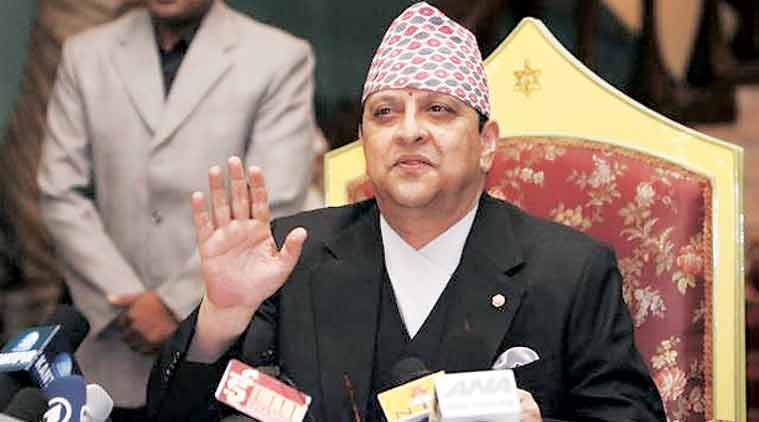Yubaraj Ghimire | Updated: December 26, 2016 4:28 am
Former King Gyanendra. (Reuters File)
On Thursday, A cabinet meeting was expected to chart the path for the adoption of a constitution amendment by the parliament. But the meeting ended after the prime minister and his team expressed fear and anger over a statement issued by the former king Gyanendra, a day earlier. Deputy Prime Minister Bimalendra Nidhi, who also holds the charge of home affairs, issued a veiled threat that the former king could be arrested in connection with the royal palace massacre shootout, 14 years ago, in which 10 members of the royal family, including the then-king Birendra, lost their lives.
An inquiry commission headed by the then-supreme court chief justice held crown prince Dipendra, enraged with his mother over her denial to him to marry the girl of his choice, guilty for the massacre. Dipendra, the report said, killed himself after killing others including his parents. Gyanendra, the third in the line of succession, remained king until Nepal’s constituent assembly declared the country a republic on May 28, 2008.
Gyanendra had called upon the people to save the country facing an onslaught on its “unity and integrity”. In a direct reference to the leaders who have been at the helm in Nepal, following the radical political changes in the country since 2006, the former king hit out at the radical forces. “Words like revolutionary, pro-change and progressive” are being misused to defame nationalism and national pride, he alleged. The statement came in handy for the ruling coalition that has failed to create a conducive atmosphere for the implementation of the year-old constitution.
Parts of the country are on the boil and there has been much protest against the delimitation of the proposed provinces. Former prime minister K.P. Oli, who is the chairman of the main opposition party, Communist Party of Nepal-Unified Marxist Leninist (CPN-UML), fueled the unrest by stating that there should not be more than five federal provinces. This demand goes against the decision to have seven provinces in the country.
Prime Minister Pushpa Kamal Dahal began Thursday’s cabinet meeting by narrating the sequence of developments and wondered if there was any link between the former king’s statement and Oli’s demands. Nidhi singled out the former king for blame with a view to bringing all political parties, including the CPN-UML, under one platform by reviving “anti-monarchism” as a binding factor . But their failure to implement the constitution seems to have made the
politicians far more unpopular than the former king, if comments on social media are anything to go by. Baburam Bhattarai’s Twitter account has 633,000 followers. Bhattarai’s tweet, asking fellow politicians to be careful about the utterances by the former king, evoked responses such as “you are a killer,” “a foreign agent,” “you are responsible for the current mess” and “Nepal was far better and more stable under the king”. Bhattarai, an ideologue of the Maoist insurgency, who played a key role in seeking India’s mediation to end the decade-long insurgency in Nepal, now heads the Naya Shakti Party. He dissociated from the Maoists a year ago.
Time, context and public sentiment have changed. Maoists and other leaders who brought about radical changes are no longer regarded as “heroes” by the people. Their ability to rule and serve the people and provide stability to the country and its economy have come under question. As the cabinet was contemplating action against the former king, now riding high on the popularity graph, a bizarre incident in the supreme court, came as proof of insecurity in the country. Lokman Singh Karki, who heads the anti-graft constitutional body, Commission for Investigation of Abuse of Authority — and is himself facing a contempt case — was assaulted in the supreme court by two people. “I am being hauled up because people in power know I have completed investigation against some of them. They know they will be naked if this probe report ever sees the light of the day,” Karki told this columnist.
It’s not just the executive that has lost credibility. There are serious question marks on the ability of the supreme court to ensure justice, provide public safety and create a situation where the constitution can be implemented. Restoring the credibility of the government as well as that of the supreme court is a challenging task. Any action against the former king is likely to be seen as an act of revenge and as a result, people, and even some political parties, could rally around him. Politics seems to have come full circle in Nepal.


